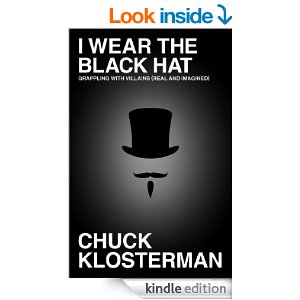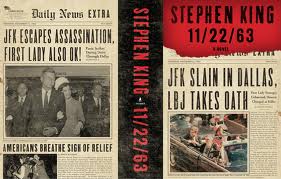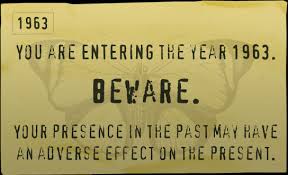I have a theoretical “beer question.” I sometimes ask this as a litmus test about famous people, or authors (assuming the author isn’t famous, I guess), or psudo-famous people. The question is: would I enjoy sitting down and having a beer with this person? (If you’re uncomfortable with that, substitute a cup of coffee for beer- I don’t mind. The premise is the same.) Barack Obama: Yes. Michael Jordan: No. Lance Armstrong? No way. Stephen King? Yeah, I think so. Mike Schmidt? Yes, please. (Of course, I will never in a million years even have the choice to have a beer with any of these people- this is a theoretical exercise only. If I had the chance to sit down with Michael Jordan or Lance Armstrong, I would, of course.)
 Chuck Klosterman comes across as a very “accessible” author. Because Klosterman writes nonfiction (he’s written some fiction, too), I feel like I get a glimpse into his life- a well-measured glimpse, I’m sure, but still a glimpse- and I think I would answer my “beer question” about Chuck with a resounding “yes.” (I live on a different continent than Chuck does, so the actual carrying out of such a thing would be difficult, but still. (Hey, Chuck- if you ever travel to East Africa, let me know!))
Chuck Klosterman comes across as a very “accessible” author. Because Klosterman writes nonfiction (he’s written some fiction, too), I feel like I get a glimpse into his life- a well-measured glimpse, I’m sure, but still a glimpse- and I think I would answer my “beer question” about Chuck with a resounding “yes.” (I live on a different continent than Chuck does, so the actual carrying out of such a thing would be difficult, but still. (Hey, Chuck- if you ever travel to East Africa, let me know!))
So it may go without saying that I really enjoy reading Chuck Klosterman’s works. It almost doesn’t matter what it’s about- music, movies, basketball, villains- I’ll read it. (I feel the same way about Malcolm Gladwell, actually.) I like the way Klosterman thinks.
For example, on page 15: “It has always been my belief that people are remembered for the sum of their accomplishments but defined by their singular failure.” Or on page 129: “Whenever someone says something that’s both realistic and abhorrent, it makes me suspect everyone else is lying about everything else.” Page 120: “Expressing outrage over a president’s lack of honesty is like getting upset over a sniper’s lack of empathy: It’s an integral component of the vocation.”
See what I mean? Engaging, thoughtful, and easily accessible.
I love Klosterman’s central question: Why do people become villains? He uses multiple figures in history to explore the topic. He uses Joe Paterno, Bill Clinton and Monica Lewinsky, Hitler, of course, and even the connections between Kareem Abdul-Jabbar and O.J. Simpson. Chevy Chase, Batman, characters from The Wire, Muhammad Ali. Even the list of bands Chuck hated while growing up- year by year! (My major one would be Willie Nelson, but I can’t even remember why I hated him any more, besides that I remember a friend calling him a “dirtbag” once.)
Klosterman finds a relationship between self-confidence and escaping villainy- like with Kobe Bryant and his misbehavior in Colorado. Kobe refuses to ever, ever address the issue, and will not answer questions on the topic. The whole subject has slid away, and what remains is Kobe’s “desire to win,” and “killer instinct on the court.” In the same way, if Bernhard Goetz had just kept his mouth shut after he shot four young men in a New York City subway, he might be regarded as a hero today. Instead, he’s just loony.
So, a villain, according to Klosterman, is someone who knows the most but cares the least. Just think about that one for a while, and then use the historical figures listed above to see where they fall. Paterno knew about Jerry Sandusky, but chose to do nothing about it. George W. Bush seemed to care, but Dick Cheney? Oof.
Anyway, CK is just interesting to read. Another section of particular interest to me is Chuck’s assertion that back in the 1970’s and ’80’s, parents generally worried about what content was being ingested by their children. In the 1990’s and later, parents are now more concerned about what medium is being used- even more than what content. This is absolutely true in my own life. Part of this, of course, is because the kind of medium available in 1982 is totally different than now. My parents just had to make sure I didn’t spend too much time in front of the “boobtube,” as my dad called it. M*A*S*H reruns were what I watched, mostly. Well, that and Phillies games. Dukes of Hazard? (Talk about a show that has aged badly…)
Anyway, now with the internet, my kids just lay down on the couch with a computer in front of their face. Or the computer and their phone. We try to check on their content absorption to a certain extent, but we find ourselves talking about “screen time” instead of the “boobtube.” As Chuck writes on page 131, “The medium is [now] far more problematic than the message.”
The “Hitler section” was also fascinating- mostly to watch Chuck’s linguistic gymnastics as he tried to cover the problem of Hitler while not offending anyone. A difficult task, I imagine. I think he succeeded, though, as he mostly wrote about the problem of writing about Hitler.
The bottom line is that this book did not disappoint. It is a smorgasbord of fun theories, examples, and solid research. How does this guy know so much? And then to be able to put it all in an easily-accessible writing style- well, this guy is talented, no doubt about it.
And if he ever comes to Kenya, I would take him out for a beer. (Or a cup of coffee.)
Stats
Published: 2013
Category: Nonfiction
Pages: 224
Rating on Goodreads: 3.64
Why I Read This Book: I like Chuck!
How I Rated This Book: 4/5
What’s Next: Arcadia, by Lauren Groff

